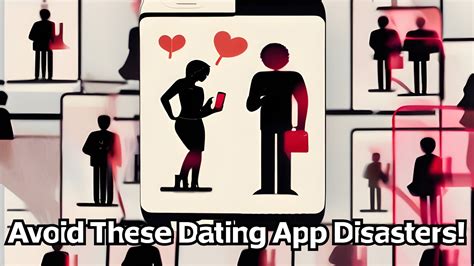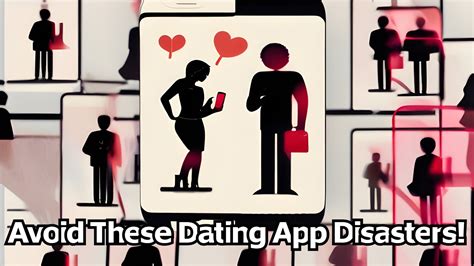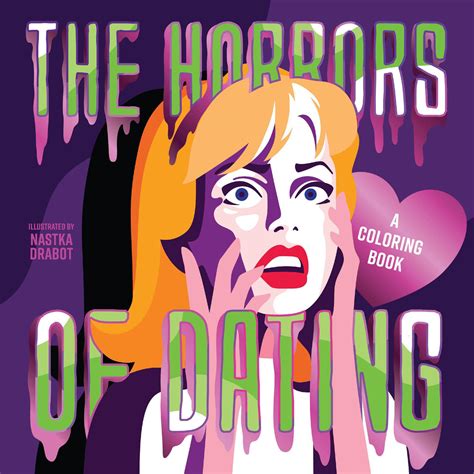
Dating app users are sharing their experiences of appalling dates, leading to a discussion about whether some encounters warrant compensation or at least a sincere apology. Tales of rudeness, financial exploitation, and bizarre behavior are fueling the debate, with some arguing that dating apps should implement mechanisms for reporting and addressing egregious behavior.
The quest for romance through dating apps can sometimes lead to nightmarish experiences, prompting a growing conversation about accountability and redress for particularly awful dates. According to a recent wave of social media anecdotes highlighted by Yahoo Lifestyle, some dates are so bad they arguably deserve more than just a silent ghosting – perhaps even compensation or a heartfelt apology. The accounts paint a picture of disrespectful behavior, financial exploitation, and general disregard for common courtesy, raising questions about the responsibility of dating platforms in ensuring a safe and respectful environment.
One user recounted a date where they were left with a substantial bill after their companion feigned a family emergency mid-meal. Others shared stories of dates who spent the entire time talking about themselves, making inappropriate comments, or displaying offensive behavior. “I went on a date with a guy who spent the entire time talking about how much money he made,” one user lamented. “He didn’t even ask me a single question about myself.” Such stories are not isolated incidents, and the sheer volume of similar experiences being shared online suggests a broader issue with dating app etiquette and expectations.
The debate isn’t just about bad manners; it delves into the realm of potential harm and exploitation. Some users have reported instances of being pressured into uncomfortable situations, subjected to unwanted advances, or even being defrauded financially. These experiences raise serious concerns about the safety and well-being of individuals using dating apps and highlight the need for better safeguards and reporting mechanisms.
The idea of “compensation” for bad dates might seem radical to some, but proponents argue that it’s a way to acknowledge the emotional and sometimes financial toll that these experiences can take. This isn’t necessarily about monetary compensation, but a broader acknowledgement of the time, effort, and emotional vulnerability that goes into dating. An apology, in many cases, would be a sufficient gesture, acknowledging the impact of the poor behavior and demonstrating a level of remorse.
Dating apps, while facilitating connections, often lack a robust system for addressing bad behavior after the initial match. While users can report profiles for violating terms of service, there’s often little recourse for dealing with garden-variety rudeness, ghosting, or simply a lack of consideration. This lack of accountability can create a breeding ground for disrespectful behavior, as individuals may feel emboldened by the anonymity and lack of consequences.
Some suggest that dating apps could implement features that allow users to provide feedback on their dates, similar to rating systems used in other online platforms. This could help to create a culture of accountability, where individuals are more mindful of their behavior knowing that it could impact their reputation. It could also provide valuable information to other users, helping them to make more informed decisions about who they choose to connect with.
However, implementing such systems would not be without its challenges. Concerns about potential abuse, false accusations, and privacy violations would need to be carefully addressed. Striking a balance between accountability and fairness would be crucial to ensuring that any new system is effective and does not inadvertently harm innocent users.
Another aspect of the discussion revolves around the unrealistic expectations that are often fostered by dating apps. The curated profiles, filtered photos, and carefully crafted bios can create a false sense of intimacy and lead to disappointment when reality doesn’t match the online persona. This can contribute to a culture of superficiality and judgment, where individuals are quick to dismiss potential partners based on trivial characteristics.
Moreover, the sheer volume of choices available on dating apps can lead to a paradox of choice, where users become overwhelmed and less satisfied with their options. The constant pursuit of the “perfect” match can lead to a cycle of endless swiping and fleeting connections, leaving individuals feeling disillusioned and frustrated.
The problem is further compounded by the anonymity that dating apps provide. This anonymity can embolden some users to engage in behaviors that they would never consider in a face-to-face setting. The lack of social cues and accountability can lead to miscommunication, misunderstandings, and ultimately, disappointing or even harmful experiences.
To address these issues, some experts suggest that dating app users should focus on building genuine connections rather than simply seeking a “perfect” match. This involves being more authentic in their profiles, engaging in meaningful conversations, and being willing to look beyond superficial characteristics. It also means being more mindful of their own expectations and being realistic about the potential for disappointment.
Furthermore, dating apps could play a more active role in promoting responsible dating behavior. This could include providing users with resources and tips on how to communicate effectively, set boundaries, and avoid common pitfalls. It could also involve implementing stricter policies regarding harassment, discrimination, and other forms of inappropriate behavior.
The conversation surrounding “dating app horrors” is not just about individual experiences; it’s about the broader culture of online dating and the need for greater accountability and responsibility. While dating apps can be a valuable tool for connecting with new people, they also have the potential to create negative experiences if not used responsibly. By fostering a culture of respect, empathy, and open communication, we can help to make online dating a more positive and fulfilling experience for everyone.
The debate also shines a light on the importance of self-respect and setting boundaries when engaging in online dating. Many users may feel pressured to tolerate bad behavior or overlook red flags in the hopes of finding a connection. However, it’s crucial to prioritize one’s own well-being and to be willing to walk away from situations that feel uncomfortable or disrespectful.
Learning to recognize and avoid common dating app pitfalls is another important aspect of navigating the online dating world. This includes being wary of profiles that seem too good to be true, avoiding individuals who are overly aggressive or demanding, and trusting one’s instincts when something feels off.
Ultimately, the responsibility for creating a positive dating experience lies with both the individual user and the dating app itself. Users need to be mindful of their own behavior and expectations, while dating apps need to provide a safe and supportive environment that promotes respect, accountability, and genuine connection. By working together, we can help to create a dating culture that is more fulfilling, meaningful, and less prone to “horror stories.”
Moreover, the normalization of ghosting in online dating contributes significantly to the issue. Ghosting, the act of abruptly ending communication without explanation, leaves the other person feeling confused, rejected, and disrespected. While it may seem like a convenient way to avoid confrontation, it can have a significant impact on the recipient’s self-esteem and mental well-being.
Dating apps could address this issue by implementing features that encourage users to communicate their intentions clearly. This could include prompts that ask users to explain why they are ending a conversation or providing templates for politely declining further contact. While these measures wouldn’t eliminate ghosting entirely, they could help to reduce its prevalence and mitigate its negative impact.
Another factor contributing to dating app dissatisfaction is the focus on superficial characteristics. Many users prioritize physical appearance, age, and income over personality, values, and shared interests. This can lead to a shallow and transactional dating culture, where individuals are treated as commodities rather than as complex human beings.
To combat this trend, dating apps could incorporate features that encourage users to focus on more meaningful aspects of connection. This could include prompts that ask users about their values, goals, and interests, or algorithms that prioritize matching users based on personality traits rather than just physical attributes.
The prevalence of catfishing, the act of creating a fake online identity, is another serious concern in the online dating world. Catfishing can lead to emotional distress, financial exploitation, and even physical harm. Dating apps need to take stronger measures to prevent catfishing and protect their users from these risks.
This could include implementing more robust verification processes, such as requiring users to submit a photo ID or linking their profile to their social media accounts. It could also involve using facial recognition technology to detect fake profiles and employing human moderators to review suspicious activity.
In addition to these technological solutions, dating apps also need to educate their users about the risks of catfishing and provide them with resources on how to identify and avoid scams. This could include creating educational videos, posting warning messages, and providing links to reputable anti-fraud organizations.
The rise of “dating coaches” and online dating advice further complicates the landscape. While some of these resources offer valuable insights and guidance, others promote harmful or manipulative tactics that can undermine genuine connection. Users need to be discerning about the advice they receive and prioritize their own values and intuition.
It’s important to remember that there is no one-size-fits-all approach to dating and that what works for one person may not work for another. The best dating advice is that which encourages authenticity, self-respect, and healthy communication.
Moreover, the gamification of dating apps, with their swiping mechanisms and points systems, can contribute to a sense of detachment and dehumanization. Users may start to view potential partners as objects to be collected or discarded, rather than as individuals with feelings and needs.
To counteract this effect, dating apps could focus on creating a more human-centered experience that emphasizes connection and empathy. This could involve incorporating features that encourage users to share their stories, express their emotions, and connect on a deeper level.
The emphasis on instant gratification in online dating can also lead to unrealistic expectations and disappointment. Users may expect to find a perfect match immediately and become discouraged when they don’t. It’s important to remember that building meaningful relationships takes time and effort and that setbacks are a normal part of the process.
To manage expectations, dating apps could provide users with realistic timelines for finding a partner and offer resources on how to cope with rejection and disappointment. It’s also important for users to cultivate a healthy sense of self-esteem and not to rely solely on dating apps for their sense of validation.
The lack of transparency in dating app algorithms is another concern. Users often have little understanding of how the matching process works and may feel that they are being manipulated or unfairly judged. Dating apps should be more transparent about their algorithms and provide users with more control over their matching preferences.
This could involve allowing users to specify their priorities, such as values, interests, or lifestyle, and giving them the ability to filter out profiles that don’t meet their criteria. It could also involve providing users with explanations of why they are being matched with certain individuals.
Finally, the potential for addiction to dating apps is a growing concern. The constant stream of notifications, the thrill of the chase, and the fear of missing out can lead some users to spend excessive amounts of time on dating apps, neglecting other aspects of their lives.
To address this issue, dating apps could implement features that promote responsible usage, such as setting time limits, providing reminders to take breaks, and offering resources on how to manage screen time. It’s also important for users to be aware of the signs of addiction and to seek help if they feel that they are losing control.
In conclusion, the “dating app horrors” that are being shared online highlight a range of issues that need to be addressed. From disrespectful behavior and financial exploitation to unrealistic expectations and algorithmic bias, the online dating world presents numerous challenges for users. By fostering a culture of respect, accountability, and transparency, and by implementing user-friendly features that promote genuine connection, we can help to make online dating a more positive and fulfilling experience for everyone. The responsibility lies with both the dating apps themselves and the users who engage with them to create a safer, more respectful, and ultimately more successful environment for finding love and companionship. The discussion surrounding compensation and apologies, while perhaps a provocative starting point, serves as a catalyst for a much-needed conversation about the ethical considerations and social responsibilities within the rapidly evolving landscape of online dating. This includes prioritizing mental health, promoting realistic expectations, and ensuring user safety above all else.
Frequently Asked Questions (FAQ)
1. Why are people sharing stories of “dating app horrors” and demanding compensation or apologies?
People are sharing their negative dating app experiences to highlight issues like disrespect, exploitation, and bad etiquette. The demand for compensation or apologies stems from the emotional and sometimes financial toll these experiences can take, raising the question of accountability for poor behavior. The discussion aims to push for better standards and safeguards on dating platforms. It is not necessarily about literal payment, but about recognition of the time, effort, and emotional vulnerability invested in dating.
2. What are some examples of behaviors considered “dating app horrors” that might warrant an apology or compensation?
Examples include being left with a large bill after a date abruptly leaves, enduring a date who only talks about themselves, experiencing inappropriate comments or unwanted advances, or being subjected to financial exploitation or fraud. More broadly, consistent disrespectful or inconsiderate behavior might also be considered egregious. Ghosting, while common, can also contribute to feelings of rejection and disrespect, particularly if it follows a period of seemingly positive interaction.
3. What can dating apps do to address the problem of bad dates and promote better behavior?
Dating apps could implement feedback or rating systems for dates, similar to those used in other online platforms. They could also provide resources and tips on effective communication and setting boundaries. Stricter policies against harassment, discrimination, and catfishing are also crucial. More transparent algorithms and features that encourage meaningful connections over superficial ones could also help. Promoting clear communication about intentions and providing mechanisms for reporting and addressing inappropriate behavior are essential steps. Verification processes, such as photo ID or social media linking, can also help to deter fake profiles and promote accountability.
4. What are the challenges of implementing systems to address bad dating app behavior, such as feedback or rating systems?
Challenges include the potential for abuse, false accusations, and privacy violations. Balancing accountability with fairness is crucial to prevent unintended harm to innocent users. Ensuring that any new system is reliable, unbiased, and protects user data is a significant undertaking. The subjective nature of dating experiences also makes it difficult to establish objective criteria for judging behavior. Furthermore, enforcing policies across diverse cultures and social norms can be complex.
5. What can individual dating app users do to protect themselves from “dating app horrors” and have a more positive experience?
Individual users should prioritize self-respect and set clear boundaries. They should be wary of profiles that seem too good to be true and trust their instincts when something feels off. Focusing on building genuine connections rather than seeking a “perfect” match can help. Being authentic in their profiles, engaging in meaningful conversations, and being realistic about expectations are important. Learning to recognize red flags and avoiding individuals who are overly aggressive or demanding is also crucial. Cultivating a healthy sense of self-esteem and not relying solely on dating apps for validation are essential for maintaining mental well-being. Users should also be aware of the potential for addiction and take steps to manage their screen time responsibly.









